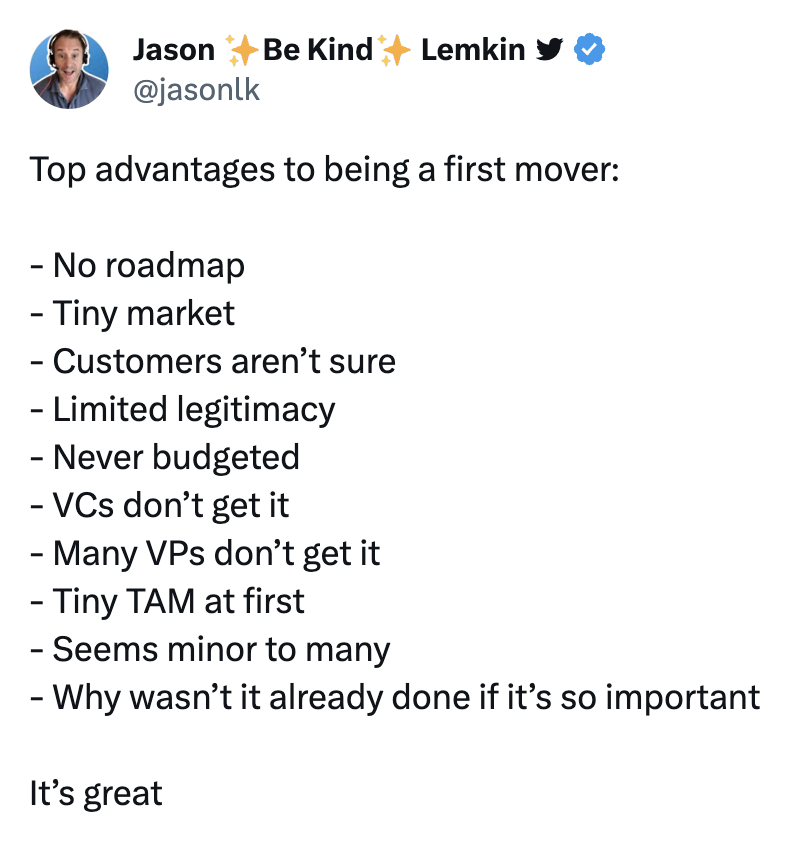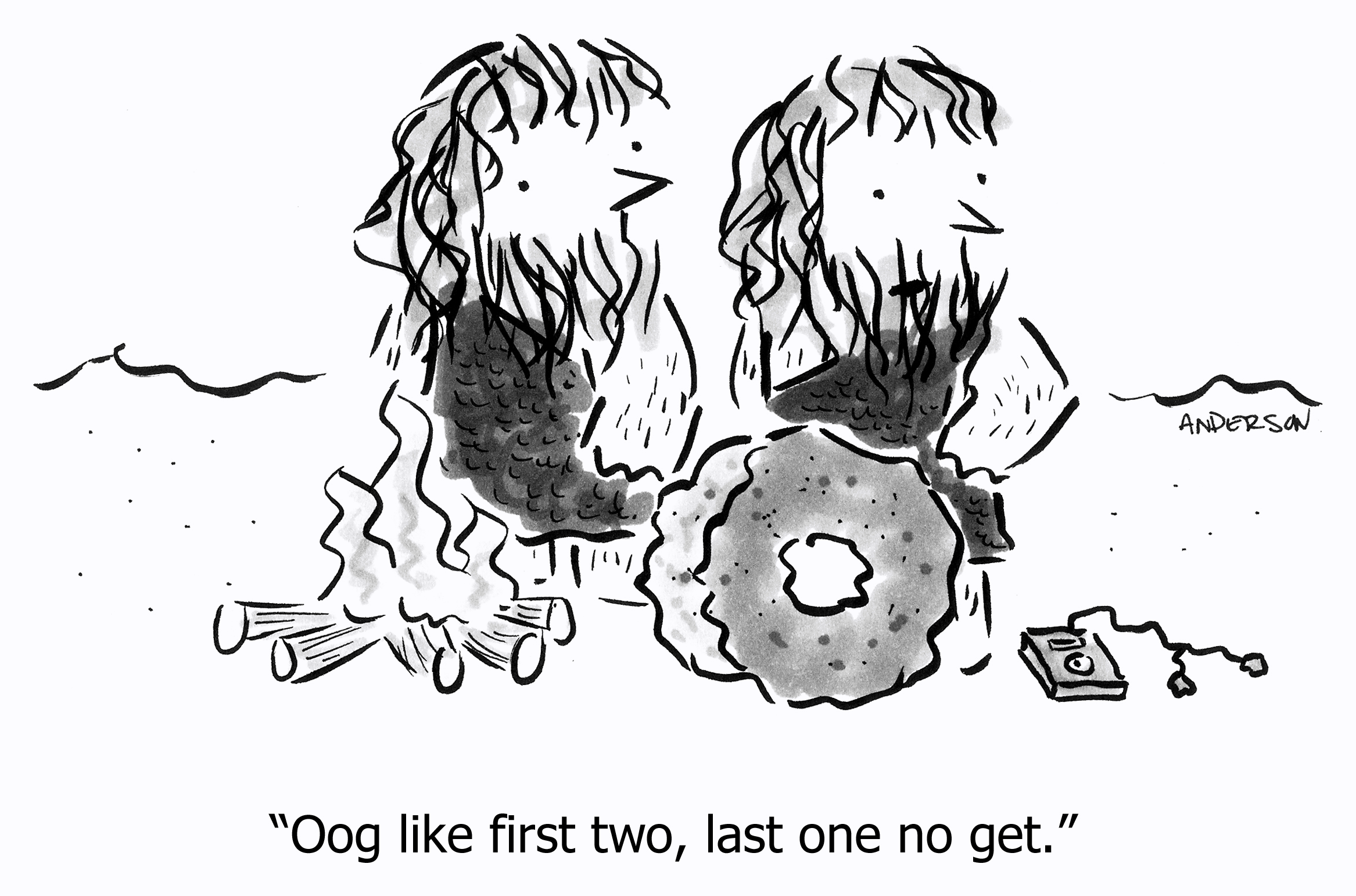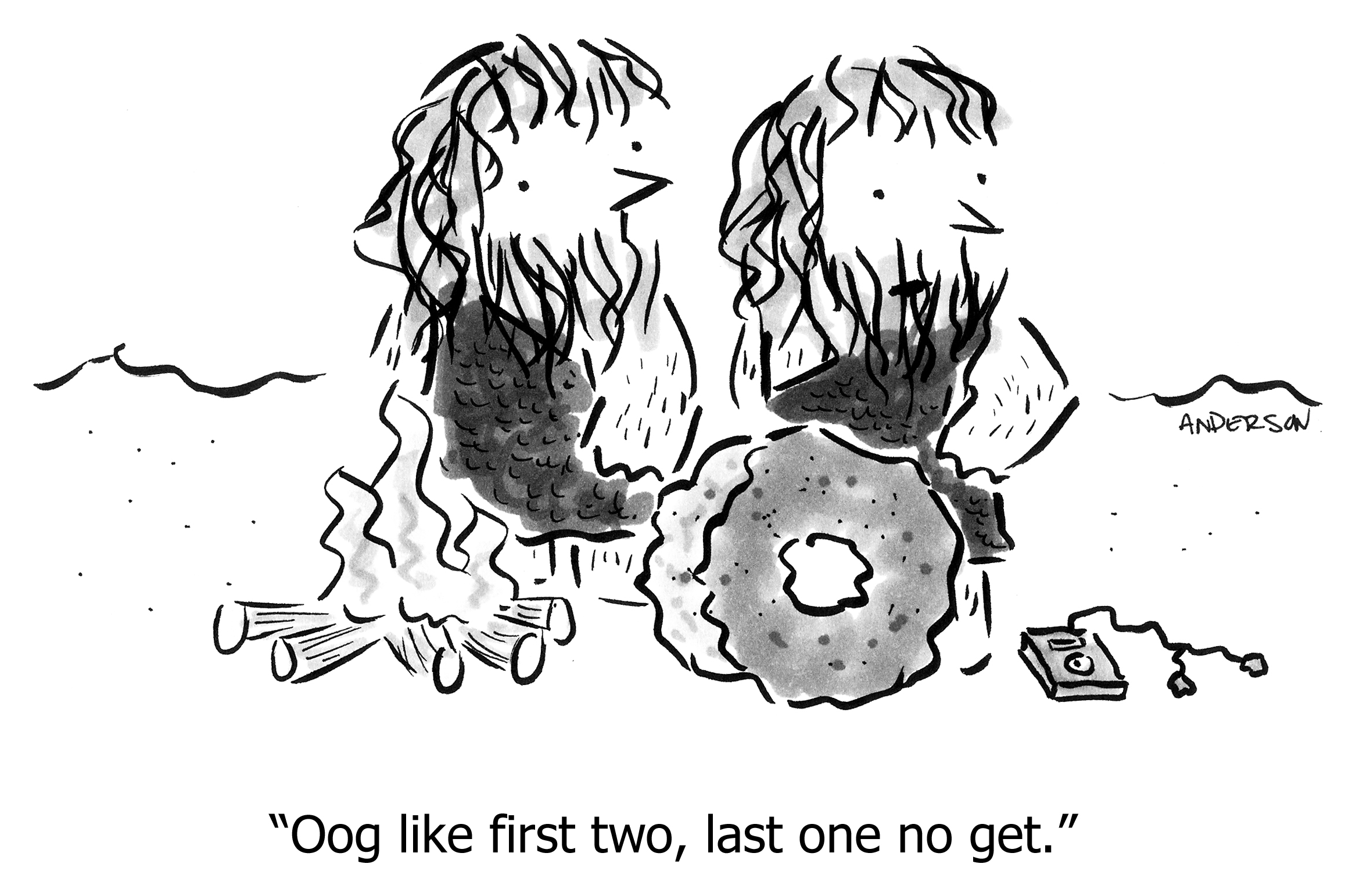When being “first” is not a competitive advantage
“We started the trend.”
“Wherever you hear companies talking about Managed WordPress Hosting, they are following our lead.”
This is how one of our competitors attempts to differentiate and compete with us at WP Engine1. Is it effective?
1 Editor’s note: This piece was written in 2011, when WP Engine was one and a half years old. As of this note in 2024, WP Engine is a Unicorn, while the competitor’s growth leveled off many years ago at less than 1/30th our size, then folded into a much larger company. With the benefit of hindsight, the predictions in this article proved accurate.
Many startups insist they’re “first” at something. As well they should—what’s the point of a starting a company that adds nothing new to the world? But is “first” a good thing? Does it make you better than your competition?
On the surface being “first” sounds impressive, implying innovation and leadership. But upon reflection, it’s not.
Google wasn’t the first search engine, the iPod wasn’t the first MP3 player, DropBox wasn’t the first cloud filesystem, Excel wasn’t the first spreadsheet, Dell wasn’t the first PC manufacturer, Facebook wasn’t the first social network, and Cisco didn’t invent the router. Yet they’re all the market leaders and their market’s greatest innovators.
Being first does imply innovation, but also implies the faults of “version one.” The first electric car, while innovative, was pretty bad by most standards—short-range, sluggish, unattractive, and constantly in the repair shop2.
2 Tesla solved the first three of these four qualities, further demonstrating the point. Counter-point: Tesla was the first to create good-enough batteries, first to realize that “performance” was non-negotiable, and first to figure out how to leverage the different engineering constraints of EV to create the safest sedan ever made.
So too with software—“v1.0” might imply novelty, but it also implies “buggy” and “incomplete.” Who wants their business to depend on a v1.0 product?
Even if you consider WP Engine to be nothing more than an imitator of this competitor (we’re not, but that’s a story for another time), the electric car analogy is apt, because in fact we’re an improvement in almost every way. We’re not the first electric car; instead we’re Tesla.
This competitor had 40 minutes of downtime last month; we had 0 (according to Pingdom, an unaffiliated 3rd-party). We’re 30% faster at delivering HTML (also Pingdom). Our security service is better—we guarantee cleanup of any hacks while this competitor simply claims they’ve never been hacked (though we’ve found malware in customers of theirs who switched to us). Our support is more responsive and knowledgable because we employ more WordPress experts per 1000 customers than anyone.
Those are tangible competitive advantages; being “first” isn’t.
In fact, being first can be a shackle because you’re stuck with supporting the legacy of that first version—features you thought were important but aren’t now (and maybe never were, a journey that new competitors will skip), grandfathered customers who are no longer profitable, architectural choices you wish you could change (and competitors were able to avoid), and a reputation that’s hard to revamp even if your company has in fact changed.
Worse, being first means you made all the mistakes in public. New competitors get to swoop in afterwards with the hindsight that you created—in pricing3, positioning, marketing, features, design, … everything. They get a running start without all your baggage. Thanks to you.
3 Editor’s note: Years later, speaking to founders of a different competitor who didn’t yet exist at the time of original publishing, I asked how they determined their pricing. The answer: “We figured you’d already done the research and tested different things, so we just copied y’all.“
Of course there are situations where being first is indeed a massive advantage. This arises when you’re not only first, but also able to expand fast and continue to innovate, and when fast expansion creates a moat which prevents late-joining competitors from catching up. Early MP3 players didn’t do this—they didn’t get huge traction and weren’t creative in hardware or design, which meant Apple had the space to innovate in design while the market was still largely up for grabs.
But McDonalds and Ford were first and kept their leads, because they never stopped innovating in process and product, constantly driving down costs while adding new desirable features, using their lead to fund even stronger growth.
Amazon is the quintessential example of “first, but relentlessly innovative” in cloud infrastructure. They didn’t just put “cloud computing” on the map, they’ve never stopped lowering prices while expanding both depth and breadth of service. If they keep it up—and there’s currently no reason to think they won’t—it’s hard to see how anyone could overtake them. And so far no one has come close, though at least four multi-billion-dollar companies are trying4.
4 Editor’s note: In 2024 this has not only held true, but more: They stopped lowering prices and still remain in the lead. Here is the explanation of the strategic moats that constructed their success.
So yes it can work, and a well-funded startup combined with a stellar team and bit of good fortune can occasionally pull it off. But most little companies aren’t in that position, and it’s often not the best risk/reward anyway.
Being “first” isn’t an end in itself—it’s not an advantage, not a feature, not a benefit the customer can experience. It can be a means to one of those ends—it can be levered into market dominance with persistence and the right strategy—or it can be a manacle that locks your company into a burden of legacy that allows newer competitors to accelerate past you.
You should be proud of being “first” at something. But like being “disruptive,” being “first” isn’t necessarily desirable.
It’s just history.
https://longform.asmartbear.com/first-competitive-advantage/
© 2007-2026 Jason Cohen
 @asmartbear
@asmartbear







